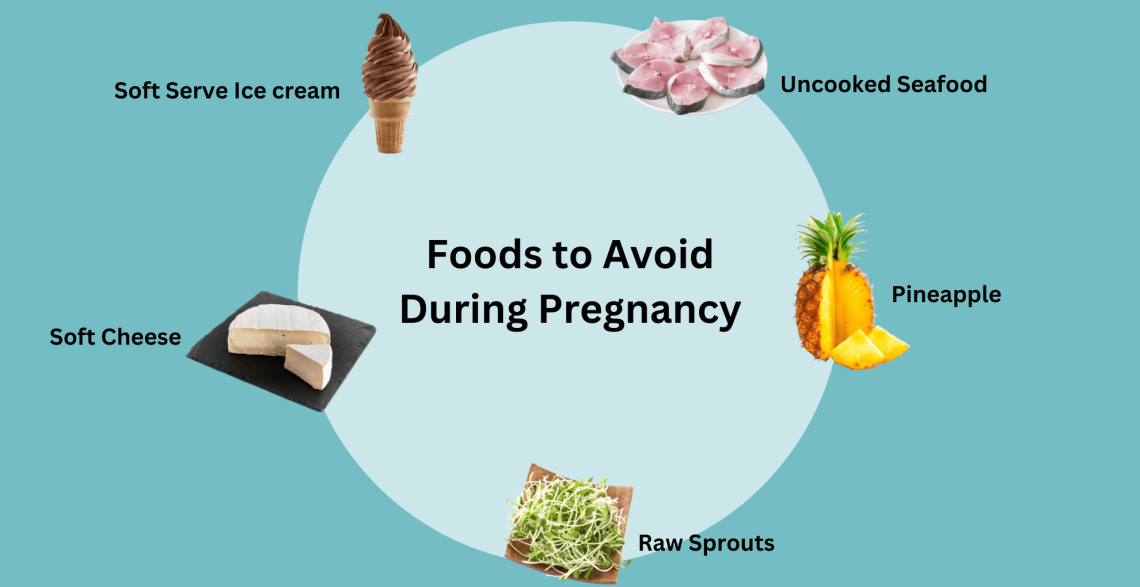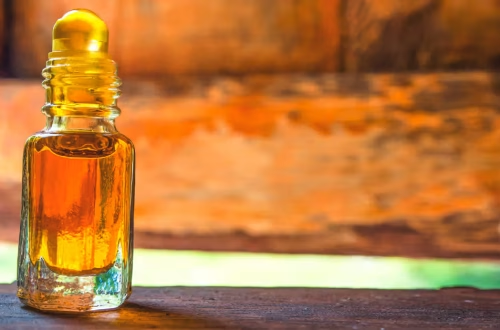Introduction
Pregnancy is a transformative journey that demands special attention to diet and nutrition. The food a pregnant woman consumes not only fuels her body but also nourishes her growing baby. While a well-balanced diet rich in fruits, vegetables, whole grains, and proteins is essential, it’s equally important to avoid certain foods that could pose risks to both mother and fetus. Some foods contain harmful bacteria, parasites, toxins, or substances that can lead to infections, developmental problems, or complications such as miscarriage, preterm labor, or birth defects. This article provides a detailed guide on foods to avoid during pregnancy and explains the reasons behind these dietary restrictions to ensure a healthy and safe pregnancy.
Raw or Undercooked Meat and Seafood
One of the biggest risks during pregnancy comes from consuming raw or undercooked animal products. These can harbor harmful bacteria like Listeria monocytogenes, Salmonella, and parasites such as Toxoplasma gondii.
- Listeria: This bacterium can cause listeriosis, a serious infection that can cross the placenta and result in miscarriage, stillbirth, or severe illness in newborns. Listeria can be found in deli meats, hot dogs (unless heated properly), and unpasteurized smoked seafood.
- Toxoplasmosis: Caused by Toxoplasma gondii, this parasite is often transmitted through raw or undercooked meat, especially pork, lamb, or venison. It can lead to miscarriage or severe birth defects affecting the brain and eyes.
- Salmonella: Found in raw or undercooked meat and seafood, salmonella can cause food poisoning with symptoms like vomiting, diarrhea, and fever, which may lead to dehydration and complications during pregnancy.
What to do: Always cook meat and seafood thoroughly to safe internal temperatures. Avoid sushi made with raw fish, rare steaks, and raw shellfish.
Unpasteurized Dairy Products
Unpasteurized (raw) milk and cheeses made from it pose a significant risk of Listeria infection. Pasteurization is a process that kills harmful bacteria by heating milk to a specific temperature for a set time.
- Soft cheeses to avoid: Brie, Camembert, feta, Roquefort, queso fresco, and blue cheeses often use unpasteurized milk and are unsafe unless labeled pasteurized.
- Risk: Consuming unpasteurized dairy products can lead to listeriosis, risking fetal infection and pregnancy loss.
What to do: Choose only pasteurized milk and dairy products. When in doubt, check labels or avoid soft cheeses unless confirmed safe.
Certain Fish High in Mercury
Fish is a great source of protein and omega-3 fatty acids beneficial for fetal brain development. However, some fish contain high levels of mercury, a heavy metal that can harm a baby’s developing nervous system.
- High-mercury fish to avoid: Shark, swordfish, king mackerel, tilefish, and bigeye tuna.
- Low-mercury fish to prefer: Salmon, shrimp, canned light tuna, catfish, and cod are generally safer choices.
Why it matters: Mercury exposure during pregnancy is linked to impaired cognitive development, learning disabilities, and motor skill problems in children.
Raw or Undercooked Eggs
Raw eggs may contain Salmonella, a bacterium that causes food poisoning. During pregnancy, foodborne illnesses can be more severe and have serious consequences for the baby.
- Foods to avoid: Homemade mayonnaise, hollandaise sauce, Caesar dressing, mousse, and tiramisu made with raw eggs.
- What to do: Ensure eggs are cooked until both yolk and white are firm. Use pasteurized eggs in recipes that require raw eggs.
Caffeine Limitations
Caffeine is a stimulant found in coffee, tea, chocolate, and some soft drinks. While moderate caffeine intake is generally safe during pregnancy, excessive consumption may raise risks.
- Recommended limit: Up to 200 mg per day (roughly one 12-ounce cup of coffee).
- Risks of excess caffeine: Increased chance of miscarriage, low birth weight, and preterm birth.
Alcohol
Alcohol consumption during pregnancy is strongly discouraged because it passes freely through the placenta and can severely affect fetal development.
- Fetal Alcohol Spectrum Disorders (FASD): A range of physical, behavioral, and learning problems caused by alcohol exposure in the womb.
- Safe amount: No amount of alcohol is considered safe during pregnancy.
Processed Junk Foods and Excessive Sugar
While not directly harmful in small amounts, frequent consumption of processed foods high in sugar, unhealthy fats, and salt can lead to pregnancy complications.
- Risks: Excessive weight gain, gestational diabetes, hypertension, and increased risk of preterm birth.
- Impact on baby: Poor maternal nutrition can affect fetal growth and increase the likelihood of obesity and metabolic diseases later in life.
What to do: Focus on whole, nutrient-rich foods and limit sugary snacks, fried foods, and processed snacks.
Unwashed Fruits and Vegetables
Fruits and vegetables can carry Toxoplasma or pesticides if not properly cleaned, posing risks to the baby.
- Toxoplasmosis risk: Infection from contaminated soil or water on unwashed produce can cause serious birth defects.
- Pesticides: Chemicals on non-organic produce may affect fetal development.
What to do: Thoroughly wash all fruits and vegetables before eating. Peel or cook when possible.
Conclusion
A healthy pregnancy relies heavily on a well-considered diet that avoids certain risky foods. Raw or undercooked meats, unpasteurized dairy, high-mercury fish, raw eggs, alcohol, and unwashed produce can expose mother and baby to harmful pathogens or toxins. Limiting caffeine and processed foods also contributes to better outcomes. Being mindful of these dietary precautions empowers expectant mothers to protect their own health and ensure the safest possible start for their babies. Always consult healthcare providers for personalized dietary advice during pregnancy.
FAQs:
Is soft cheese safe to eat during pregnancy?
Soft cheese is safe only if it’s made from pasteurized milk; avoid unpasteurized soft cheeses.
Can I eat sushi while pregnant?
Sushi with raw fish is best avoided during pregnancy to reduce the risk of infection.
What about caffeine consumption during pregnancy?
Limit caffeine intake to 200 mg per day to stay safe.
Are herbal teas harmful during pregnancy?
Some herbal teas are safe, but others may be harmful; always check with your doctor first.
What is listeria and why is it dangerous in pregnancy?
Listeria is a bacteria that can cause serious infections and harm the baby during pregnancy.






